Sri Lanka’s Easter Sunday bombings: one year on from the terror that took my family
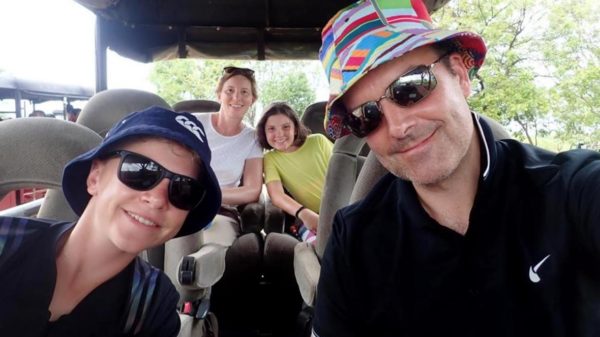
Source:The Times UL
Ben Nicholson, whose wife and children were killed in last year’s attacks, tells Shanti Das how he is coping with the ultimate loss
Ben Nicholson was ordering pancakes from the breakfast buffet when the bomb killed his family. “A year ago today I had a wife and two children,” he says. “Anita and I had a life planned out together and we were watching our two children grow up, and enjoying it, and enjoying what we were doing. That all just stopped.”
It was about 8.45am on April 21 last year — Easter Sunday — and he, Anita, 42, Alex, 14, and Annabel, 11, had enjoyed an “amazing” week-long holiday in Sri Lanka, seeing elephants and blue whales and messing around in the hotel pool.
They had packed their cases ready to go home and wandered around the capital, Colombo, sweeping the gift shops for souvenirs. Now they sat in the second-floor restaurant of the Shangri-La hotel, feasting on local dishes and pastries before their flight home. Their transfer to the airport was booked for 9.30am.
“We were sitting at a table by the window that the kids had picked and we weren’t far from done,” Ben recalls. “Everyone had eaten loads, and we were just chit-chatting about going home. I didn’t need any more food, but the food was great and I just decided I wanted something else, so I got up and left the table. There were some Sri Lankan flatbread-pancake-type things being cooked, so I was chatting with the guy who was making them about what they were.”
Ben was standing a few feet away from a suicide bomber. As the pancake-maker dropped the batter on the hot plate, the bomb went off. A second blast followed moments later. “That decision, to get some pancakes, was the difference between all four of us going at once and me surviving,” he says. “How do you rationalise that?
Ben, an insurance lawyer from Grays in Essex, was knocked sideways by the explosion and fell to the floor. A concrete pillar shielded him from the worst of the impact. A photograph of him with a haunted expression and his T-shirt soaked red with blood would be printed in newspapers and flashed on TV screens. “Really it was just scratches,” he says. “At one point they did sit me down and take a few bits of glass out of my midriff. But it was very incongruous; there was virtually nothing wrong with me.”
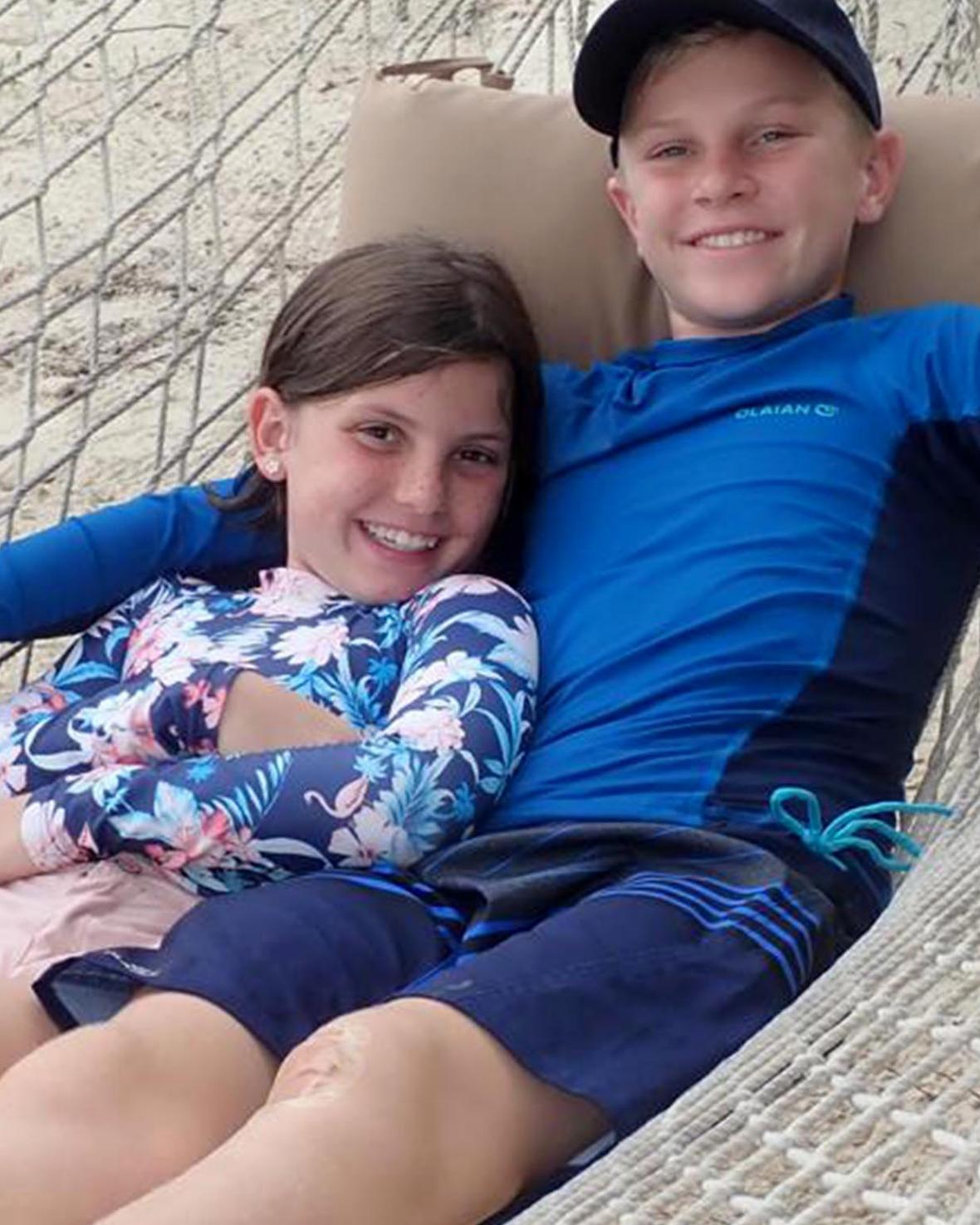
Annabel ‘doted’ on big brother Alex
There had been no concrete pillar to protect his family. “The dust settled fairly quickly and it was a bright day,” Ben says. He saw Anita and Annabel straight away, but Alex was not there. “I knew Anita and Annabel were gone. I knew it as soon as I saw them. But nonetheless we took them out and moved them outside and put them in an ambulance.”
Ben spent the next seven hours looking for Alex, checking evacuation centres and hospitals. It was only as he was going ward to ward that he saw the newsflash on the TV screens and realised the explosion was part of a co-ordinated terrorist attack. In all, 259 people were killed in churches and hotels across Sri Lanka.
Before seeing the news, he had thought it was a gas explosion. “I was just confused. It didn’t remotely occur to me that it might be a bombing. I was in a massive state of shock and my mind was obsessively focused on Alex. I was thinking, ‘Maybe he went to get a drink and took himself away from the situation by some chance,’ and he’s just been evacuated somewhere.
“And then I had to think about, ‘If I do find him, what state is he going to be in?’ It definitely crossed my mind a lot of times. And, ‘If he is alive, how am I going to tell him about his mum and his sister?’”
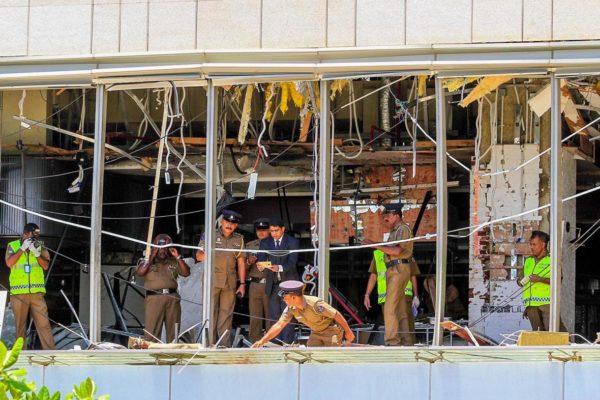
He found Alex at 4pm, after being “gently persuaded” to check the mortuary. Like his mother and sister, Alex is believed to have died instantly in the blast. “The reason I couldn’t find him at the hospital was that he didn’t go to hospital.” Ben remembers lots of paperwork that night. He went before a makeshift magistrates’ court to have Anita, Alex and Annabel’s bodies signed into his custody. “Each time they would give me a form, I’d need to say, ‘Well, no, I need three.’”
One year on, his eyes fill with tears as he tells his story for the first time. Speaking by video call from his home in Singapore, where he, Anita and the children emigrated in 2011, he says the tragedy is “still incredibly new and raw”, but that he is, somehow, coping.
“People say they don’t know how they’d cope, but I would’ve said all that as well if you’d asked me the day before. When you’re facing it, I suppose you’ve got to find a way of dealing with it.”
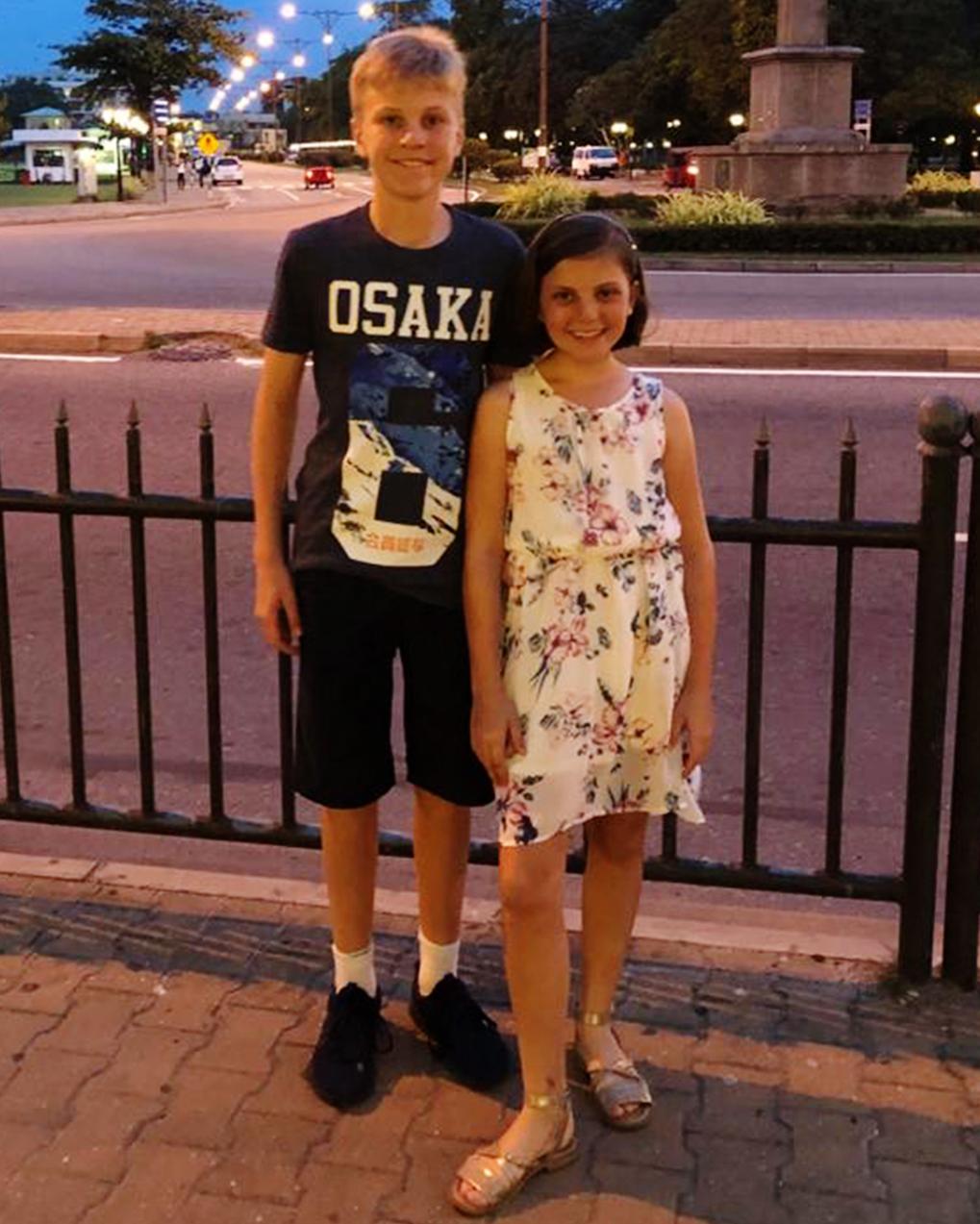
Alex and Annabel on the day before they died
The 44-year-old, a partner at the law firm Kennedys, says he feels “incredibly lucky” to have shared such a joyous two decades with Anita, whom he met at sixth-form college and fell in love with after university. They bought their first house together, renovated it, supported each other through their early careers and shared in the joy of becoming parents. The couple would have celebrated their 20th wedding anniversary this summer. He describes Anita, who worked most recently as in-house counsel for Anglo American, a mining company, and was previously a legal adviser to the Treasury, as “extremely kind and loving. She was completely devoted to the family, but equally there’s no doubt she had an absolutely ferocious intellect as well,” he says. “She was wonderful.
“I had 22 amazing years with Anita. People spend their whole lives trying to get what we had. You have to be happy about that, to have had that time. But, equally, there are moments you just look at it and think, we had everything and we lost it all.”
Their daughter, Annabel, was the joker in the pack, the “younger, funny sister, bouncing around and being mischievous”. Alex could also be a “cheeky chappie”. “His teachers all said to me that he’d often go past the line but then he’d always be able to charm you with his big smile.” Alex also adopted the role of caring big brother. Annabel “doted” on him, Ben says. “She knew she always had him to rely on.”

Ben and Anita in 2004
He thinks about them all the time. “The whole world around you is just going on and you see other things happening and you just think of yourself in that situation,” he says. “There are prompts everywhere; there’s nothing to stop you thinking about them. Not that I want to stop.
“At the beginning, you wake up every morning and you’re in that phase where you’ve forgotten, and then you remember what has happened all over again. That is hard. But I think that maybe because I drive myself quite hard, I just get up and go.”
He returned to work shortly after the attack to give him back a “sense of normality”, and still coaches at Tanglin Rugby Club, where Alex and Annabel played and Anita volunteered. However, he could not bear to return to the old family home, and has moved to a new apartment. He finds comfort in the photographs that adorn the walls alongside art he and Anita chose together. He is having counselling and has thrown himself into sport and charity work.
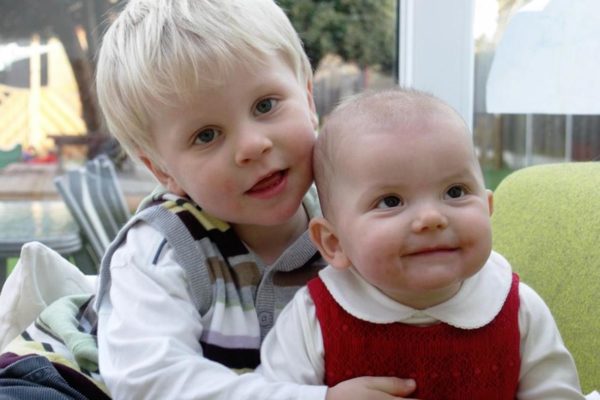
Alex, 3 and Annabel, 18 months
A few weeks after the attack, he set up the Anita, Alex and Annabel Nicholson Memorial Fund, which has raised almost half a million pounds. Last month, he was part of a team that circumnavigated Singapore in an outrigger boat, a challenge that took 17 hours and raised more than £100,000. He plans to use the money to “create a legacy” for Anita, Alex and Annabel. One project is the launch of a scheme to support disadvantaged children in Sri Lanka through rugby.
In December, he went back to Sri Lanka for the first time to meet organisations he hopes the charity can go into partnership with. While there, he returned to the Shangri-La hotel to visit a memorial garden opened for the victims, and stood in the restaurant that was destroyed in the attack.
“It’s hard to put my finger on exactly what it was but there was definitely a feeling that I wanted to go back and be there. It was surreal, inevitably. But it felt like that was the right thing to do. It did feel, somehow, that they were part of the place.”
He says he does not hold any anger towards those responsible for the attack. “I don’t think about [the bombers]. I just literally don’t think about them. I just give them nothing.”
And he does not regret taking his family to Sri Lanka. “You can’t regret going because it’s part of our lives and what we were,” he says. “We were just ridiculously unlucky.”
Support to the Anita, Alex and Annabel Nicholson Memorial Fund here: atlasfrc.org








No Comments